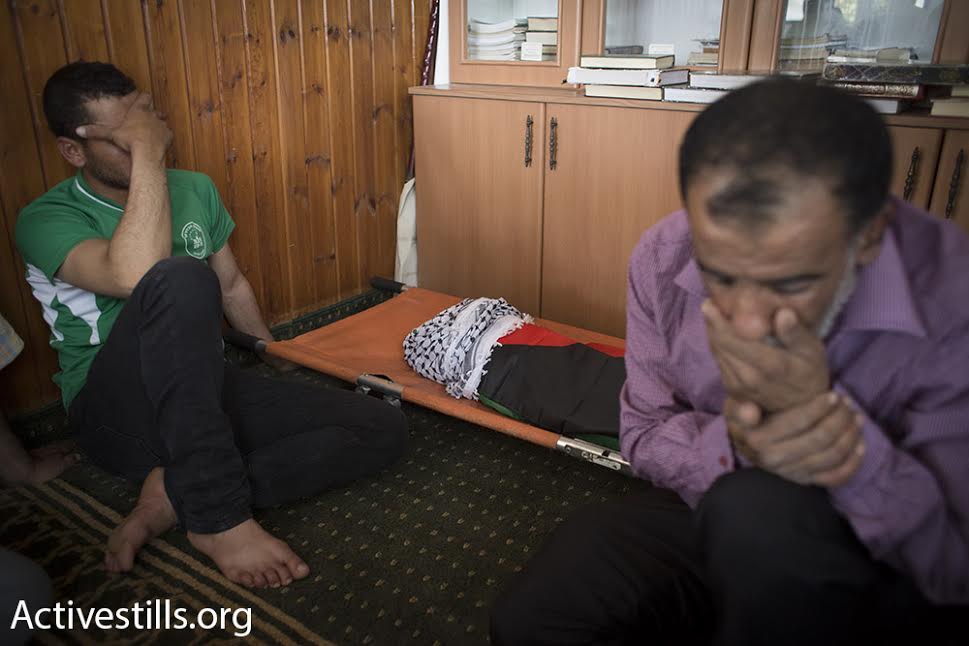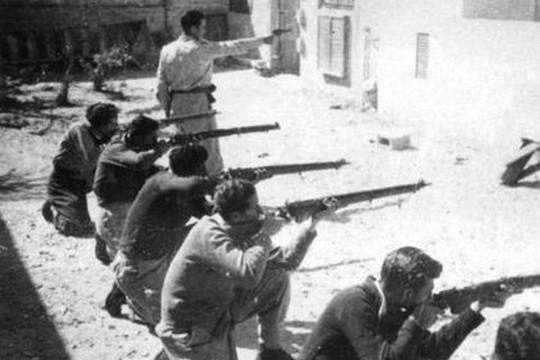Let’s stop calling those who have bombed, shot, or burned Palestinians ‘Jewish.’ Let’s call them what they really are: Israeli.
By Yonatan Englender

Israel is a country that is quick to appropriate every phenomenon or activity that takes place within it, from the success of its tech entrepreneurs (in whom the state did not invest even a single shekel) to the successes of its athletes (for whom the state did not provide even the most basic conditions for adequate practice). Even environmental disasters and car crashes are quickly turned into national events.
Therefore, it is a bit strange that we refrain from referring to our homegrown terrorists as “Israeli,” instead referring to them as “Jews.”
The kind of terrorism committed by the likes of Baruch Goldstein, Jack Teitel, or the Jewish Underground — which attempted to blow up the Al-Aqsa Mosque in the 1970s — is always defined as “Jewish terror,” never Israeli. This is true even when the terrorists are IDF soldiers, such as Danny Tickman, who opened fire on Arab-owned shops in Haifa, or David Ben Shimol, who fired a missile at a Palestinian bus, killing one and wounding 10 others. The same goes for the young Israelis (two of them soldiers) who were arrested last month for walking around Be’er Sheva and beating Arabs with clubs, knives, and metal bars.
We label these terrorist acts, committed by people who were raised and educated in Israel, “Jewish terror,” thus creating a buffer between us and them. In our internal cataloguing, we choose to view these as acts that stem from religious fanaticism, somewhere on the ISIS-Hamas spectrum, rather than as a part of normative Israeliness.
The photos published by the media of these terrorists, often showing them in kippot and tzitziot, only supports this kind of classification. Their despicable actions — tossing grenades into a family home, stabbing passersby, burning a teenage boy alive — turn them into monsters, the same kind of convenient image that comes to mind when we think of Palestinian terrorists. Only religion can turn people’s hearts into stone and make them act this way, we think. We tell ourselves that these Jewish terrorists are inspired by their Muslim counterparts, that they are nothing more than a few rotten apples in a healthy society.
We must remember, however, that the identity of these terrorists is not only religious — it is also national. Jewish terror in the United States, France, or Israel contains unique characteristics, as every place has its own circumstances. In Israel, many of the terrorists were born, raised, and educated here. The terrorism we label “Jewish” is actually as Israeli as Bamba, Waze, and the IDF.
Blue and white terrorism
We have a tendency to ascribe these actions to religious extremism, yet the historical roots of Israeli terrorism — whose origins lie with the Haganah, Etzel, and Lehi, what we refer to today as “underground organizations” — were led and run almost entirely by secular Jews. Their impetus, back then as today, was no less national than religious. The holiness of the land, racial purity, and national sovereignty — the ideas on behalf of which terrorists carry out their acts. Although they wear a religious mask, it is not difficult to recognize the nationalist layer beneath. The fact is that we have yet to see ultra-Orthodox yeshiva students carry out terrorist acts against Arabs. Bereft of a nationalistic motive, they spend their time studying torah and confronting Haredi IDF soldiers.

The fact that Israeli society condemns these acts of terror is a positive thing, however we must not delude ourselves into believing that this is anything beyond a ritualistic act. The average Israeli politician will express his or her deep disgust with the burning alive of 16-year-old Muhammad Abu Khdeir, but will remain silent after the IDF blows up a school in Gaza, killing 20 children. The disgust, then, is not about the killing of innocents — which is, after all, routine here — but as a response to the willingness of Israeli civilians to challenge the IDF’s monopoly on violence. As for us, we must not be mistaken: the rhetoric may be Jewish in content, but the violence is all blue and white.
Yonatan Englender is a digital editor for Channel 10 and a guide with BINA — The Jewish Movement for Social Change. This post was originally published in Hebrew on Local Call.
